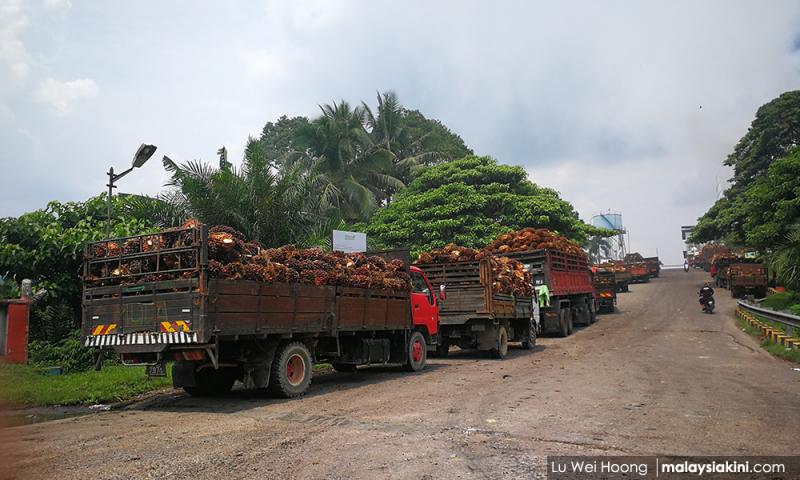Italian ambassador lauds Malaysia's efforts on sustainable palm oil
Malaysia is on the right path to get its palm oil production and the oil palm industry certified to ensure that the country's palm oil is recognised as a sustainable commodity, says Italian Ambassador to Malaysia Cristiano Maggipinto.
"We welcome the commitment from Malaysia, and we are happy that Malaysia is doing its part for sustainability, to get more of its palm oil to be certified.
"We think Malaysia is in the right direction because more palm oil in Malaysia is now certified with MSPO (Malaysian Sustainable Palm Oil). This is very important...that (sustainability) is the future for every one of us,” he said in a recent interview with Bernama International News Service.
The Malaysian government has made it mandatory for all oil palm planters and smallholders in the country to obtain the MSPO certification by the end-2019.
Introduced in 2015, the certification is exclusively for palm oil that is sustainably and responsibly grown and produced in Malaysia.
The certification covers seven aspects of palm oil production from the field to the final product, namely management commitment and responsibility; transparency; compliance and legal requirements; social responsibility, safety and employment conditions; environment, natural resources, biodiversity and ecosystem services; best practices; and development of new plantings.
The Malaysian government has also capped the expansion of oil palm plantations at 6.5 million hectares by focusing on utilising higher yielding planting materials and increasing productivity without the need to expand into new forests or peatlands.
The country also maintains its forest cover by at least 50 per cent, in spite of accusations by the West that oil palm plantations have caused deforestation and threaten conservation.
Maggipinto also felt that with those steps taken, the relevant Malaysian agencies and key industry players should increase its engagement with European Union member states to “clear the air” surrounding the industry.
“We will keep buying sustainably grown palm oil from Malaysia. Italy is one of the most important importers of Malaysian palm oil which we use in the food industry.
“The EU directive does not say that it will not buy palm oil, but it concerns the production of biofuel in the EU. We have to phase out certain components in the production of biofuel to make the production more sustainable for the environment,” he stressed.
He said Italy's import of palm oil from Malaysia last year was €250 million or 372,000 tonnes.
Data from the Malaysian Palm Oil Board showed that Malaysia exported a total of 1.91 million tonnes of palm oil to the EU in 2018, down four percent from 2017.
The EU is the second largest importer of Malaysian palm oil after India, buying 12 percent of the total palm oil produced in 2018.
The palm oil industry in countries like Malaysia and Indonesia had suffered a blow following EU's proposal to restrict palm oil in biofuels starting 2021 and to completely phase it out by 2030.
The restriction will potentially affect the livelihood of the 650,000 oil palm smallholders in Malaysia.
- Bernama
RM12.50 / month
- Unlimited access to award-winning journalism
- Comment and share your opinions on all our articles
- Gift interesting stories to your friends
- Tax deductable

 Bernama
Bernama